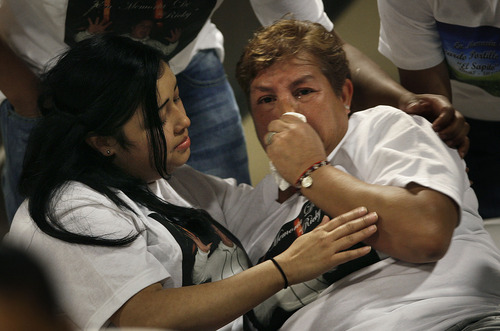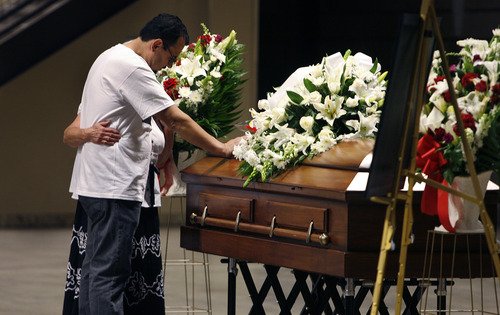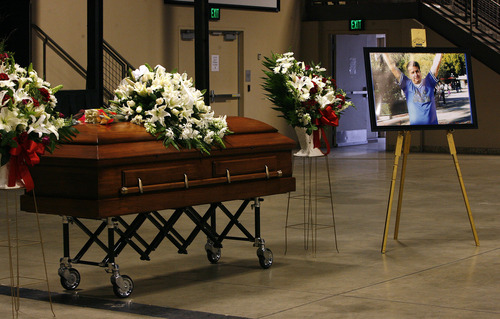This is an archived article that was published on sltrib.com in 2013, and information in the article may be outdated. It is provided only for personal research purposes and may not be reprinted.
The state's largest media outlets have filed a motion seeking to keep open portions of juvenile court proceedings involving a 17-year-old accused of punching a soccer referee to death.
The hearing, slated to start Monday morning in 3rd District Juvenile Court, will determine whether the teen, who is facing a third-degree felony charge of homicide in the death of referee Ricardo Portillo, 46, should face trial as an adult or remain in the juvenile system.
Juvenile Court Judge Kimberly Hornak issued a ruling Friday afternoon that would close all those proceedings against the teen to the public.
The teen, whose name is being withheld because of his age, admitted Friday that there was enough probable cause to support the charge filed again him. That admission shifted the proceedings to simply a certification hearing to determine whether the adult or juvenile system is the best venue for the youth, who has no previous juvenile history. The teen is accused of punching Portillo during an April 27 soccer match at Eisenhower Junior High in Taylorsville. Portillo died after a week in a coma.
The crime is punishable by up to five years in prison in the adult system. But if the case remains in the juvenile system, the teen, who turns 18 in October, could be held in detention until he is 21 years old.
In a motion filed over the weekend, attorney Jeffrey J. Hunt argued on behalf of media outlets that Hornak has previously ruled that portions of the juvenile proceeding should remain open, with the exception of certain testimony, including medical, psychological and psychiatric reports, as well as those related to family or social circumstances.
Hunt is asking the judge to clarify why she is now closing the entire proceeding.
He is arguing that other factors — including the seriousness of the offense, whether the protection of the community requires the isolation of the minor beyond juvenile detention, whether the offense was committed in an aggressive, violent or premeditated manner, the likelihood of rehabilitation and the previous teen's juvenile history — will also be discussed. That information, Hunt argues, is not classified as private.
"The Court should keep the courthouse doors open for such testimony, and allow the public and the news media to observe these important proceedings," Hunt wrote in court documents.
The teen's attorney is fighting to keep him in the juvenile system due to his age, while the Salt Lake County District Attorney's Office contends the youth belongs in the adult system because the teen is of "sufficient maturity" to be tried in adult court, and that the "likelihood of rehabilitation of the juvenile is minimal."
In his motion, Hunt also argues that the public has a right to hear from the teen himself, should he choose to testify.
"The Minor has the right to testify or provide evidence on each of the statutory certification factors, including those factors identified about which do not relate to private court records," Hunt argues. "The Minor's testimony and evidence on these factors is likely to be highly probative and significant to the Court's certification decision.''
As such, Hunt wrote, "there is a compelling public interest in allowing the public and news media to hear and observe such testimony."
Twitter @sltribjanelle







